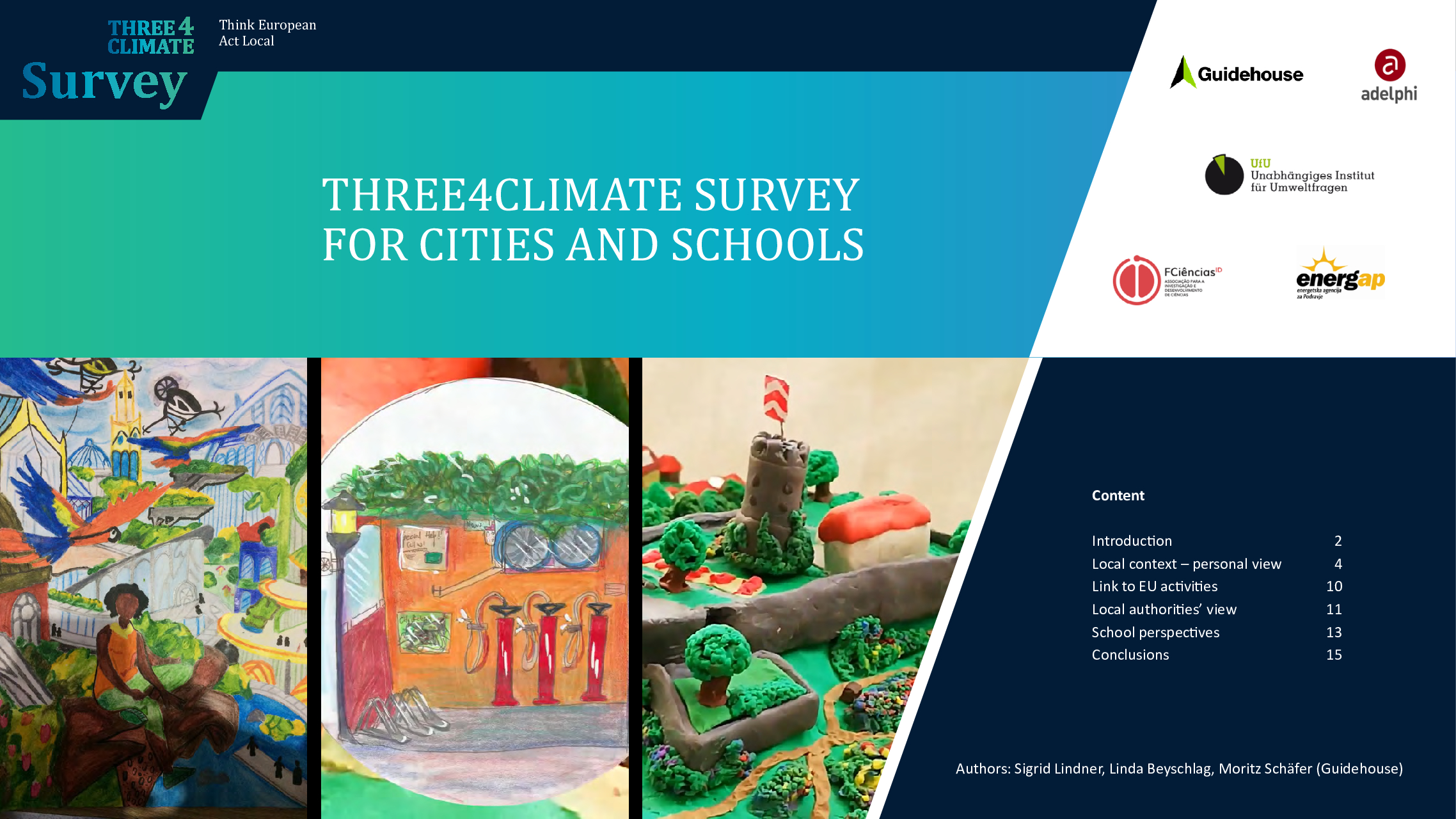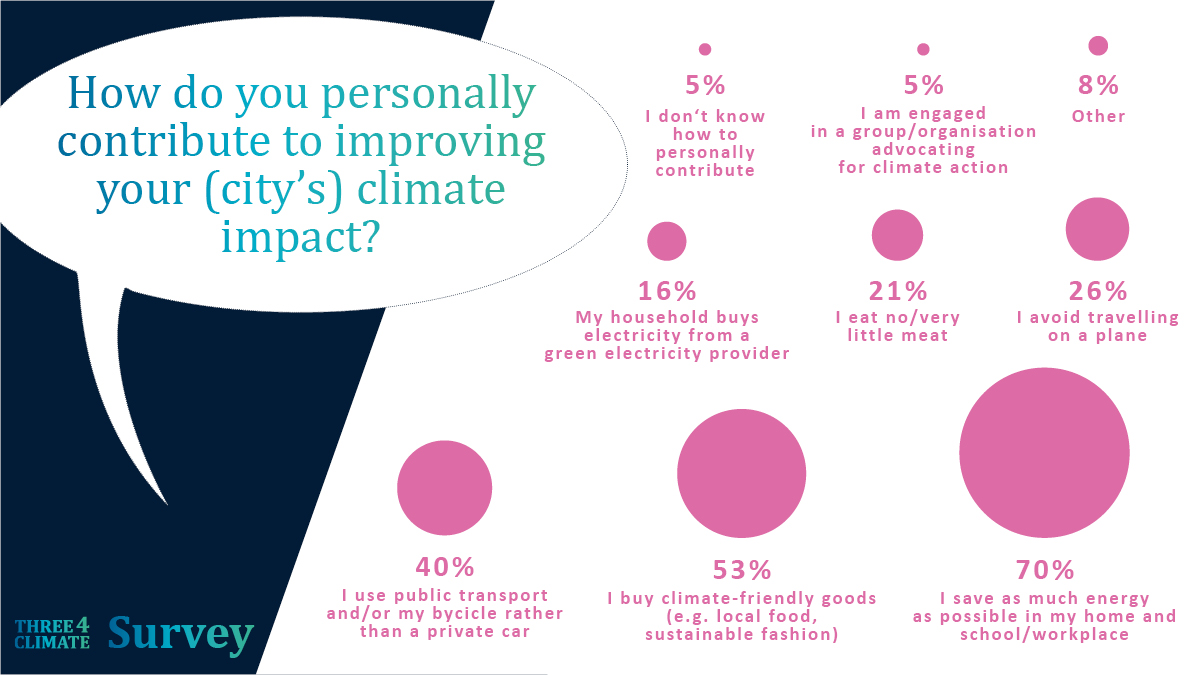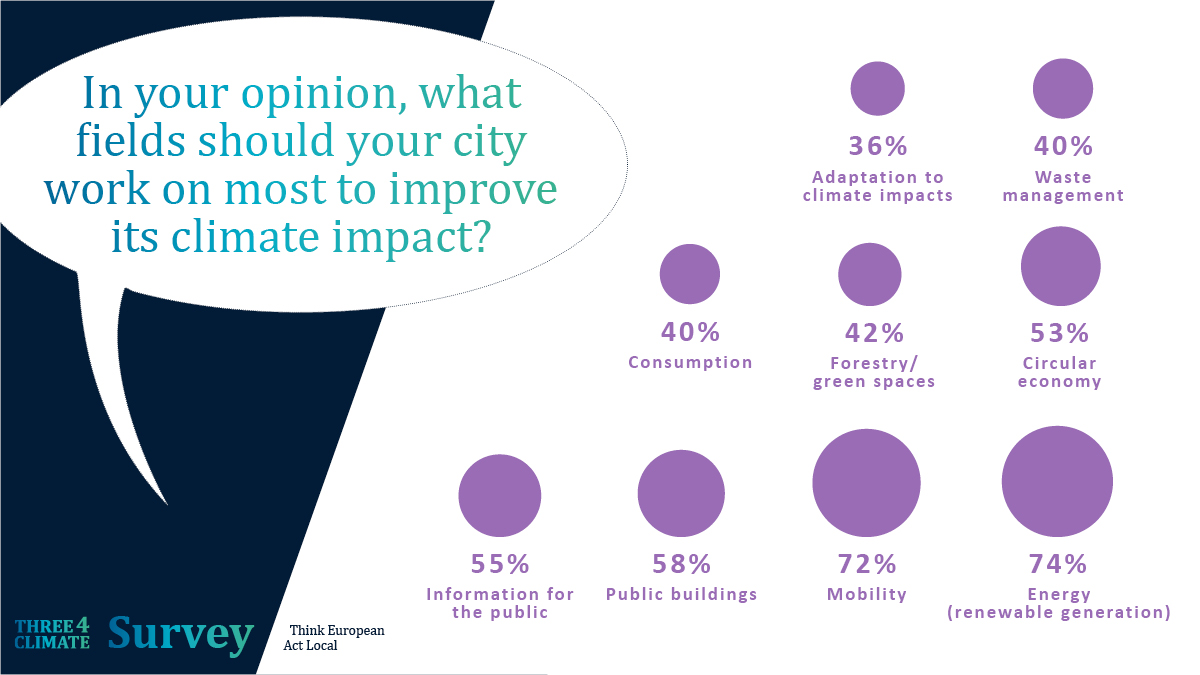Survey: Think European, Act Local?
by GIZ/EUKI,
How do citizens in the trio presidency countries Portugal, Slovenia and Germany view climate action? Is climate change addressed adequately in schools there? What are the survey respondents themselves doing to protect the climate? The EUKI-funded project Three4Climate has established intensive dialogue between six European cities over the past year: Braga and Loulé in Portugal, Kranj and Maribor in Slovenia and Bielefeld and Radolfzell in Germany. During this time, around 800 residents – including local politicians, teachers, pupils and their families – were surveyed on their attitudes to climate change mitigation.

Protect the climate? And if so, how?
The good news first: the survey found that 94% of respondents consider climate change an important issue. There were only minor differences between the scores in countries and cities on this matter. Contrary to the overall societal trend in the EU, climate change was an ‘important’ or ‘very important’ concern in the Three4Climate survey, especially for those aged 30 or older and for (only) 77% among those aged 16-30. The survey does not lay claim to being representative, but it nevertheless provides a fascinating perspective on the mood with respect to local climate action: when asked about their personal contribution to mitigating climate impact in their cities, respondents in five of the six cities most frequently responded that they saved energy at home and at work or school. In the German city of Bielefeld, 78% of respondents said they prefer to use climate-friendly modes of transport such as cycling or public transport, rather than cars. This result is in line with the city’s ambitious mobility policy, which aims to reduce cars’ share of traffic from 51% to 25% by 2030.
Survey


What do the participants expect from their cities?
First and foremost, they want the expansion of renewable energies. This was the most frequent answer in both participating Slovenian cities – Maribor and Kranj – and in the Portuguese city of Loulé. Accordingly, energy is a priority not just with respect to personal contributions to climate action (see above), but also as regards what citizens expect from their cities. The second most important topic area for respondents was mobility, followed by energy efficiency in public buildings, information for the public and the circular economy. The results make it clear that even people in municipalities who are already committed to climate action can still contribute substantial potential for improvement and ideas. At a glance:

Climate Action – Homemade or at EU Level?
There were significant differences between individual cities and countries when survey participants were asked whether they had ‘heard about the European Green Deal.’ In Slovenia, 67% of respondents in Kranj) and 45% in Maribor were aware of the European Green Deal. This contrasts with the case in Portugal, where on only 28% of respondents in Braga and 29% in Loulé had heard of it. When asked whether their home city should work more closely with the EU on climate change, people in five out of six cities responded with a resounding ‘yes’ with more than 75% in agreement.
The full survey and many more insights, including on climate change expectations among school students, can be found here.
